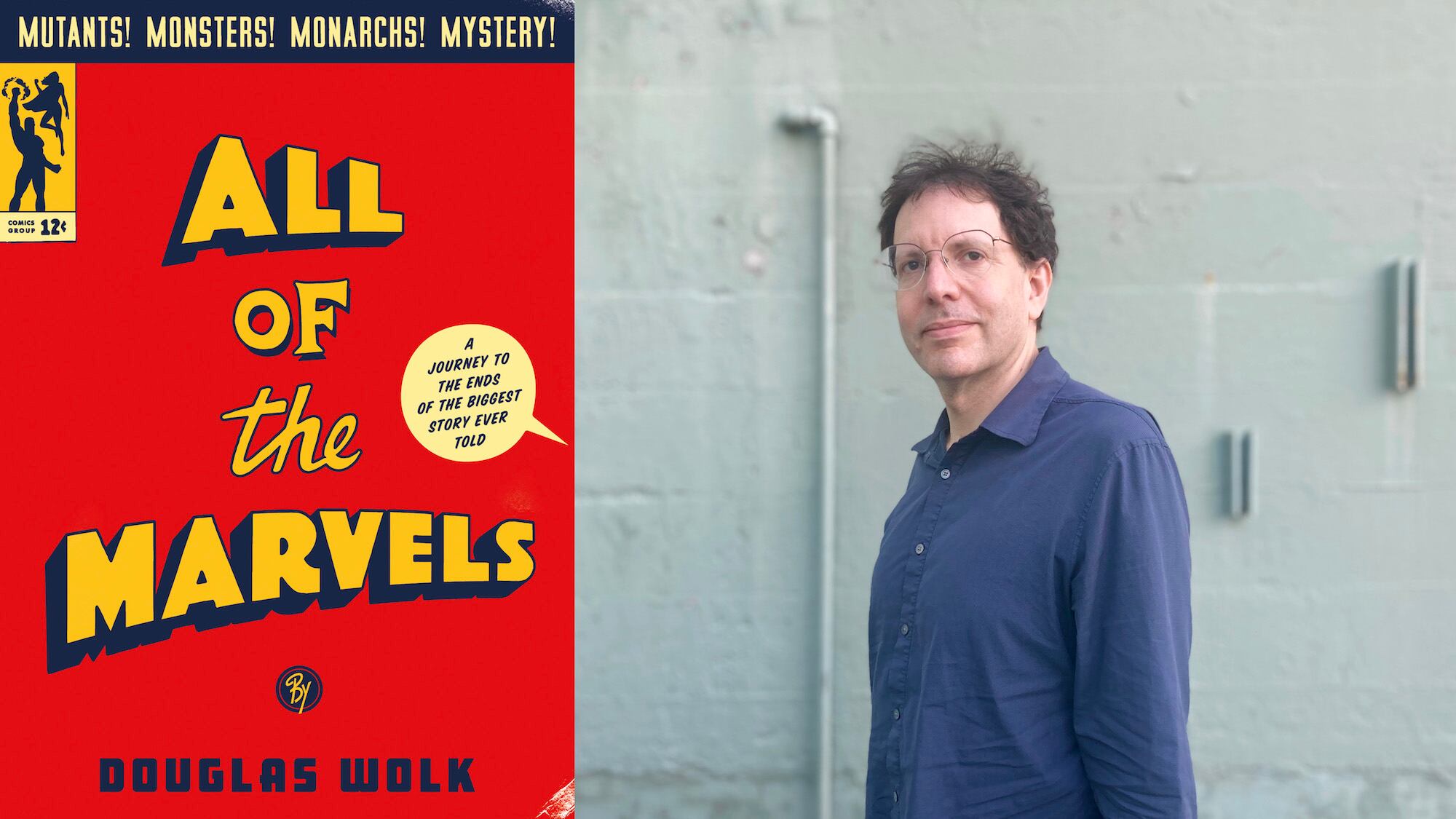If The Simpsons’ insufferable Comic Book Guy had a real-life archrival, it would be esteemed local author and critic Douglas Wolk. A comics history professor at Portland State University, Wolk won an Eisner Award for his 2008 book Reading Comics: How Graphic Novels Work and What They Mean. And while his knowledge of costumed crusaders is unparalleled, it’s his fervor for inclusivity that truly sets him apart from the rest of the nerds.
Wolk’s latest opus is All of the Marvels (Penguin, 384 pages, $28), which chronicles his insights along a self-directed journey of reading all the superhero books that Marvel Comics published in the past 60 years.
That’s just over 27,000 comics. And those books constitute “the longest continuous, self-contained work of fiction ever created,” Wolk writes.
Wolk recommends this sense-shattering marathon to no one. “I read all these comics so you don’t have to!” he tells WW.
A prime organizational metaphor in All of the Marvels is geography. Wolk refers to himself as a tour guide on a “strange, looping route.”
The overwhelming volume of comics is a mountain. The book is a map. He implores readers not to start at the beginning (he didn’t). “You must stray from the path,” he writes. “Skip around! Trust your taste!” Exclamation points abound in All of the Marvels because Wolk is so darn excited about his subject.
Enthusiastic as Wolk is about the Marvel Universe, he is not a company man. He stands with creators, who were not always treated well. In Wolk’s nuanced opinion, Stan Lee was “a genius” and “charlatan” as well as “an unbelievably good editor.” And this gets to the heart of what makes All of the Marvels such a joy to read. Wolk sees the big Marvel picture—its repetitions, victories and failures—in a way no one in history has before.
He employs the same nuance when discussing Marvel’s troubled history with minority representation and sexism, revealing a wealth of sociological evidence in the comics’ panels and from vintage letter columns.
Blaxploitation and Yellow Peril abounded. But Marvel also created the first African superhero (Black Panther) and the first African American superhero (The Falcon), and gave Shang-Chi his own book: a Wolk favorite called Master of Kung Fu. Captain America punched out Hitler a year before the U.S. entered World War II. It’s a messy subject all around and one that Wolk doesn’t shy away from. But neither does he let it ruin his enjoyment.
Wolk’s aim is to teach people how to enjoy comics without being daunted by the insular nature of Marvel’s mythology. “The only kind of ‘gatekeepers’ who have any business being around comics,” he says, “are the ones who make sure the gate stays wide open to anyone who wants to come join the fun.”
GO: Douglas Wolk appears in conversation with Kelly Sue Deconnick at Portland Book Festival. Portland Art Museum, Miller Gallery, 1119 SW Park Ave., literary-arts.org. 3 pm Saturday, Nov. 13. $15-25.
